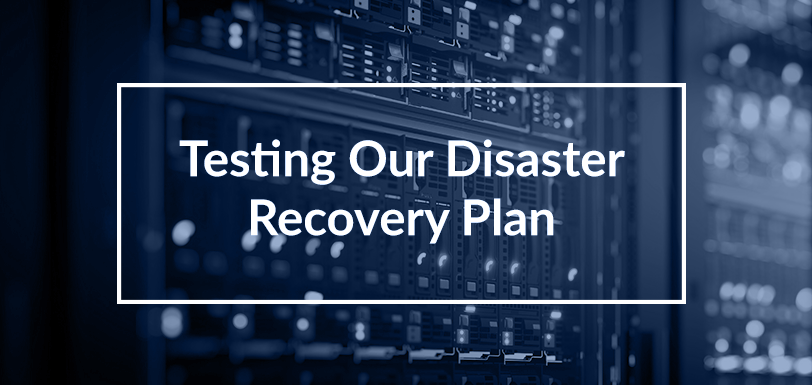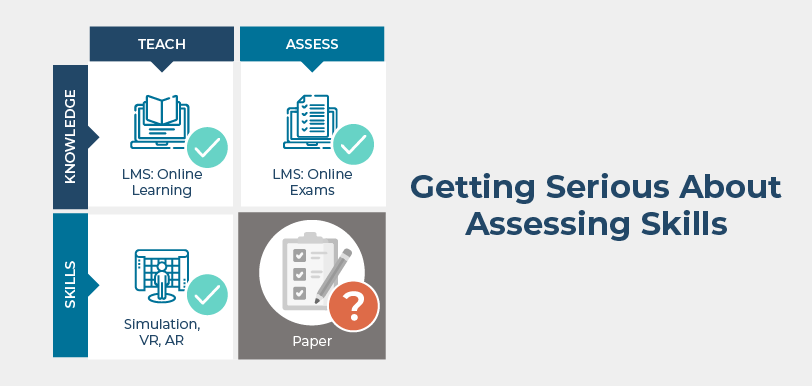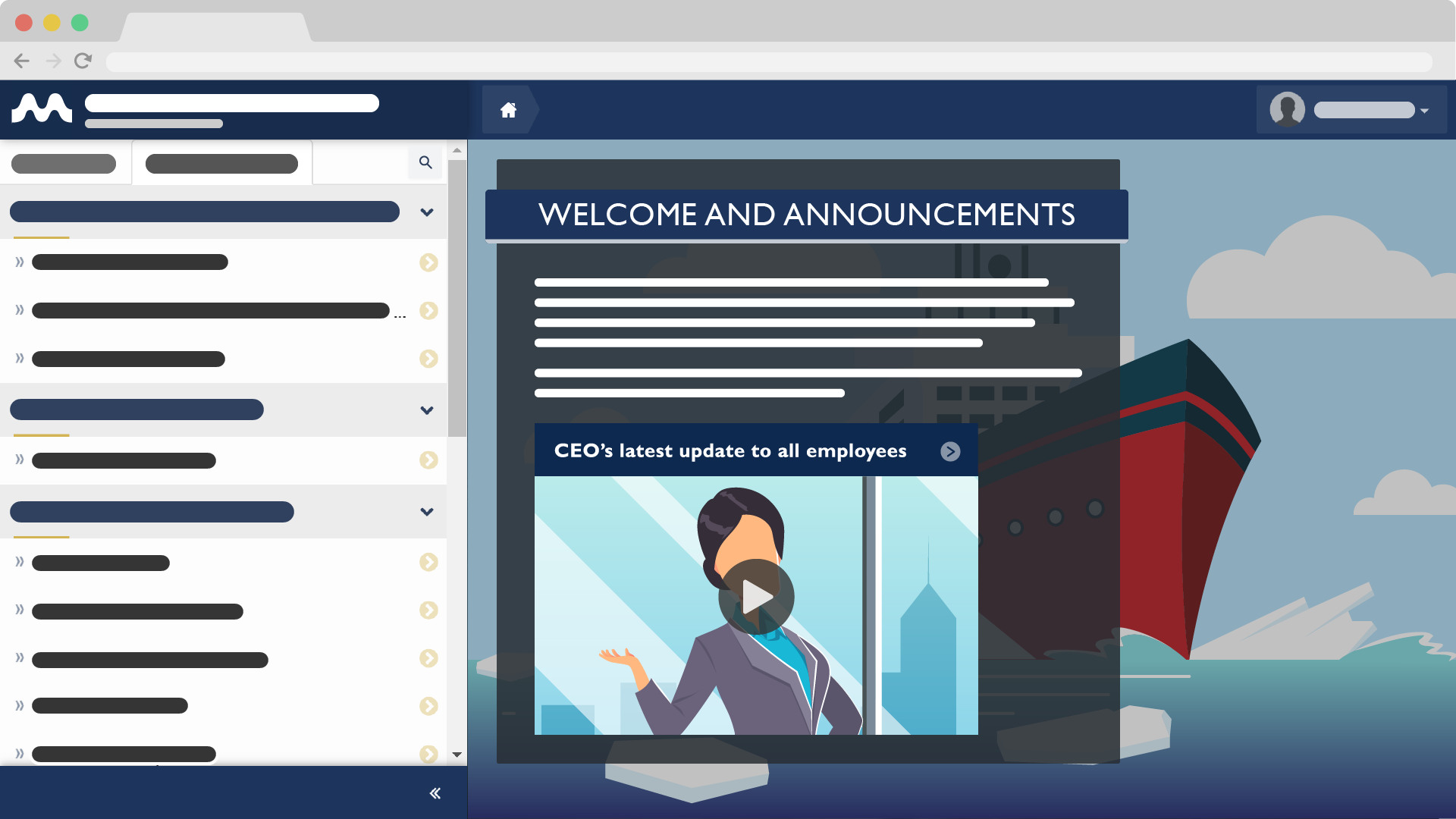The Future of Maritime Training 5 Years From Now
Oct 21, 2015 Murray Goldberg 4 Analytics, Maritime TrainingFor anyone involved in maritime training, now is an incredibly exciting time full of opportunity. More than ever before, there are advanced techniques and technologies available that can significantly improve training outcomes and access to training, while keeping costs under control. Properly deployed, these advances will improve safety – on that, the research is very clear. So what’s in store for the future of maritime training? What changes will we see in maritime training over the next 5 years? There are many, but space is limited so we will focus on a few of the most notable.
Blended Learning
It is easy to argue that the biggest advance in training in the last 20 years has been blended learning. Blended learning means using more than one technique for training delivery. It is just beginning to take hold in the maritime industry and I suspect it will be the biggest story in maritime training over the next 5 years.
In practice, blended learning usually means combining on-line learning with face-to-face learning. There are many ways to “blend” the learning experience, but let’s look at one model – that of using on-line self-study as a precursor to classroom or on-board training. This is an incredibly successful model that has been proven in thousands of studies to significantly improve training while at the same time being reasonably inexpensive and easy to implement.
It is easy to understand how it can be helpful. Imagine a vessel familiarization course which begins with some online self-study followed by on-board instructor-led training. The on-line study would likely focus on foundational knowledge about the vessel, equipment, layout, routines, and so on. The instructor-led on-board training would then continue the process by developing the hands-on experience and skills to complete the learning.
There are many advantages over conventional training. First, the initial portion, being online, is very “trainee centered”, meaning candidates can proceed at their own pace and on their own terms – increasing the likelihood that they will learn the required knowledge successfully.
Second, the on-line portion is guaranteed to teach company-vetted best practices. Most other forms of training, whether they are classroom or (especially) job-shadowing, are subject to a wide degree of variation according to the personal experience, biases and abilities of the instructor. This lack of standardization can be dangerous in a safety-critical environment.
Third, when the candidates arrive on-board or in class for their instructor-led training, all candidates now have a very uniform level of knowledge. This allows the instructor-led training to be much more efficient because the “knowledge” portion of the training has already been covered and there is less variability to accommodate in the trainees.
If the maritime industry follows the successful path of higher education and other industries (and I see no reason to believe it will not), then blended learning will be a huge story over the next 5 years.
Analytics
Another trend that is sure to impact maritime training is the availability and use of analytics in training. A favorite business mentor of mine once said “if you can’t measure it, you can’t manage it”. Nowhere does this apply more than it does in training.
Simply said, analytics are just measurements of the health of the training we provide. Examples of analytics include measurements such as:
- average exam scores (determine how your trainees are doing overall),
- average exam scores segmented by competency (determine whether some competencies are not being learned),
- average time on learning materials or in classes compared to performance scores (determine the efficiency of your training),
- or even performance segmented by employee background (determine which kinds of backgrounds yield better performers).
The point of knowing this type of information is two-fold. First, it allows you to find hidden training problems before they become performance issues or, worse, an accident. And second, knowing these numbers allows you to apply changes to your training and then determine whether the change made a positive impact. This is the essence of continuous improvement. Without it, you are shooting in the dark.
In the past, these analytics have been very time consuming and expensive to calculate and maintain – so very few organizations (aside from the most safety conscious) took the time. Now, however, sophisticated on-line training tools called learning management systems (LMS for short) are ushering in a new era of analytics – and consequently a new era of insight and improvement in training.
Adaptive Learning
Every vessel is a world unto itself – with different equipment, different routines, different layouts, and even different corporate and flag-state regulations. So the training for personnel on any vessel – especially familiarization training, is by necessity unique to that vessel. Until recently, the only way to accomplish this efficiently is through job shadowing – a staple in the maritime industry.
Sadly, job shadowing is one of the worst forms of training. It is difficult to standardize, almost impossible to measure, and highly variable in its effectiveness. Fixing these issues requires the creation of company-vetted, best practice training resources and programs for every vessel in your fleet. That would be a very daunting and expensive process – both in terms of the initial creation and the maintenance.
Fortunately, a relatively new technique called “adaptive learning” can help to solve this problem. Adaptive learning is a feature of some learning management systems. In essence, adaptive learning tailors the training program to each individual trainee – automatically. An LMS which supports this feature asks the trainee what role and vessel they are training for, and then automatically creates a set of company-vetted learning materials from training materials in the database. Each trainee receives an online, custom “textbook” targeted to that trainee.
Given the huge variability present in maritime operational contexts, no other industry that I am aware of can make use of this feature as effectively as the maritime industry. Therefore, adaptive learning is an important innovation to watch over the next 5 years.
Conclusion
This is an incredibly exciting time in maritime education. Change is afoot – and there is a formidable arsenal of tools waiting to be deployed for the benefit of safety in our industry. As indicated in the introduction of this article, if you are involved in maritime training in any way, it is time to take a hard look at your training practices because there are advances available that can significantly improve training outcomes, performance and safety.
Follow this Blog!
Receive email notifications whenever a new maritime training article is posted. Enter your email address below:
Interested in Marine Learning Systems?
Contact us here to learn how you can upgrade your training delivery and management process to achieve superior safety and crew performance.







Murray, speaking from 7 years of experience using a marine-tailored LMS, I certainly endorse everything you’ve stated in this article. I also would be more than happy to address any colleagues’ questions concerning the development and deployment of such a blended learning approach. I can be reached at jeff.joyce@bcferries.com
Thanks Murray et al. Great article, looking forward to the next one!
Not to flood Jeff’s e-mail inbox with requests for information, but I have to endorse what Jeff has said. Jeff, as the Director of Fleet Operations at BC Ferries has been at the forefront of bringing maritime training into the modern era – and has the results to prove that the effort was by far, worth it. He’s also suffered the pains and bears the scars common to early adopters (he’s been at this for 7 years). So why not benefit from Jeff’s experience?
Jeff – have you ever considered writing a book? Just kidding (but not really). Actually, I’m not kidding at all – except for the fact that I know you don’t have the time.
Thanks for the comment!
Hi Murray, I fully endorse Jeff’s comments. Having been a maritime lecturer since 1984 in London and worldwide, I cannot emphasise sufficiently the importance of good specific and general maritime training in order to enhance careers, improve commercial knowledge, reduce mistakes and thereby overcome disputes more professionally. In addition, as a maritime arbitrator since 1994, I am constantly amazed by the amateurish approach still being used by far too many people within our vast and important industry who are both untrained and ~ much more worrying ~ given responsibilities to handle commercial and technical matters which are worth huge amounts of money without always having sufficient training or knowledge or the intelligence to realise that they don’t have the necessary training or knowledge ! So please continue to spread the word, as I do, about the importance of how to be a professional in shipping.
Thanks Jeff. I do agree that there is a lot of very good information of best practice that can be employed to advantage within our industry. It isn’t the case that we don’t know how to improve safety and performance through targeted training, just that some operators are not doing it yet. That may be because they don’t care (hopefully not too many of those), or because they simply are not aware of the potential benefits and how to derive them. The great part is that there is so much opportunity to improve the status quo – which makes this an exciting “movement” to be a part of. I see evidence everywhere that the message is being heard and that people are starting to “get it”. So keep spreading the good word – it makes a difference.
Take care and thanks so much.